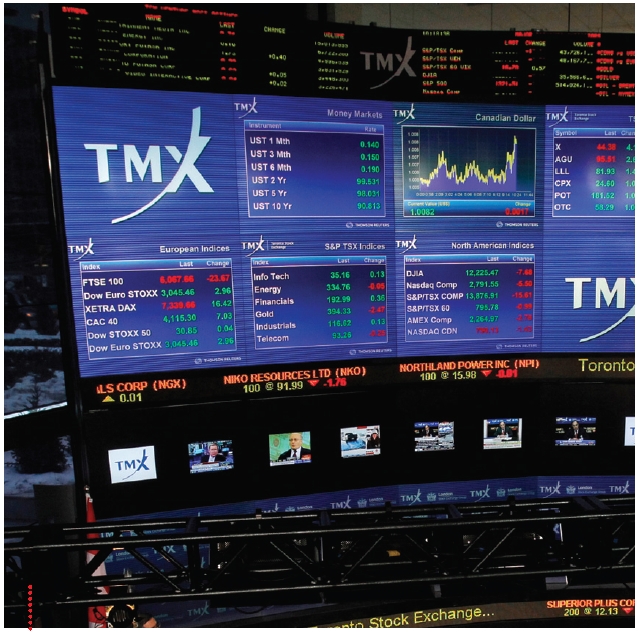The TSX's new majority-voting policy will force resignations
By Sheldon Gordon
ON FEBRUARY 13, the Toronto Stock Exchange took a major step toward reform of corporate governance. The exchange announced rule changes that will require all TSX-listed issuers, other than those that are majority controlled, to implement majority voting for directors in uncontested elections. The rules will force the resignation of a director who fails to win a majority of votes, unless there are “exceptional circumstances.” The reform will take effect at the end of June.
Currently, if the majority of shareholders withhold their votes, a director can still be elected, as the only options are to vote “for” a nominee or to “withhold” a vote. Under the new regime, a director who receives a majority of “withhold” votes will have to resign.
The majority voting requirement for TSX-listed companies follows earlier TSX-led governance reforms in 2012 that required directors to be elected annually and individually — rather than collectively as a company-endorsed slate.
A TSX survey of 200 listed issuers last summer found that 76 per cent had already adopted majority-voting policies. Paul Fitzgerald, Co-Chair of the corporate finance and securities team at Norton Rose Fulbright Canada LLP, says that while the majority voting won't make a huge difference, taken together with the 2012 changes, “it creates an environment where we've got visibility into each member of the board.
“It sets up the possibility that someone receives so many votes against, compared to everybody else, that they're really an outlier. Directors will look at it differently now because they're individually on the line and have a bit more skin in the game because of it.”
Fitzgerald thinks that directors appointed from within the company (rather than outside appointees) will be most susceptible to negative votes, as shareholders issue protest against entrenched policies on such matters as executive compensation.
The voting reforms raise the spectre of nominees behaving like politicians in proactively soliciting the backing of shareholders. “I don't think it would mean actual campaigning,” says Fitzgerald, “but you might see more disclosure in the proxy circulars. That would be intended to address possible concerns that shareholders may have about particular directors.”
None of Fitzgerald's clients has voiced concern about the TSX amendment, he adds. “I think most of our clients have already implemented majority-voting policies. This will probably have more effect on smaller companies. They may not be as concerned as the larger issuers are with corporate governance.”
Stephen Erlichman, executive director of the Canadian Coalition for Good Governance, says that majority voting is “a fundamental principle of shareholder democracy that is already the rule around the world except in Canada and the US.” While he, too, does not expect it to have a major impact on boards, “some directors will have to resign.”
For instance, three directors of Magna International Inc. who had backed the controversial 2010 buyout of company founder Frank Stronach – including the chairman – were forced to step down after the company introduced majority voting, notes Erlichman. “Withhold” votes, meanwhile, have often been cast against directors on the compensation or governance committee of companies, he says.
Erlichman sees the TSX's majority-voting policy as a step toward more far-reaching reform. “If we have majority voting and if securities regulators act to fix the flaws in the proxy-voting system, then we can move on to the next frontier: giving shareholders a say in who actually gets nominated to become a director.”
But he notes that the new majority-voting rule, while applicable to the 1,500 issuers listed on the TSX, doesn't affect the 2,500 companies on the TSX Venture Exchange. The TSX rule change is a limited “workaround,” when what is really needed, he says, are amendments to the Canada Business Corporations Act and comparable provincial statutes.
By Sheldon Gordon
ON FEBRUARY 13, the Toronto Stock Exchange took a major step toward reform of corporate governance. The exchange announced rule changes that will require all TSX-listed issuers, other than those that are majority controlled, to implement majority voting for directors in uncontested elections. The rules will force the resignation of a director who fails to win a majority of votes, unless there are “exceptional circumstances.” The reform will take effect at the end of June.
Currently, if the majority of shareholders withhold their votes, a director can still be elected, as the only options are to vote “for” a nominee or to “withhold” a vote. Under the new regime, a director who receives a majority of “withhold” votes will have to resign.
The majority voting requirement for TSX-listed companies follows earlier TSX-led governance reforms in 2012 that required directors to be elected annually and individually — rather than collectively as a company-endorsed slate.
A TSX survey of 200 listed issuers last summer found that 76 per cent had already adopted majority-voting policies. Paul Fitzgerald, Co-Chair of the corporate finance and securities team at Norton Rose Fulbright Canada LLP, says that while the majority voting won't make a huge difference, taken together with the 2012 changes, “it creates an environment where we've got visibility into each member of the board.
“It sets up the possibility that someone receives so many votes against, compared to everybody else, that they're really an outlier. Directors will look at it differently now because they're individually on the line and have a bit more skin in the game because of it.”
Fitzgerald thinks that directors appointed from within the company (rather than outside appointees) will be most susceptible to negative votes, as shareholders issue protest against entrenched policies on such matters as executive compensation.
The voting reforms raise the spectre of nominees behaving like politicians in proactively soliciting the backing of shareholders. “I don't think it would mean actual campaigning,” says Fitzgerald, “but you might see more disclosure in the proxy circulars. That would be intended to address possible concerns that shareholders may have about particular directors.”
None of Fitzgerald's clients has voiced concern about the TSX amendment, he adds. “I think most of our clients have already implemented majority-voting policies. This will probably have more effect on smaller companies. They may not be as concerned as the larger issuers are with corporate governance.”
Stephen Erlichman, executive director of the Canadian Coalition for Good Governance, says that majority voting is “a fundamental principle of shareholder democracy that is already the rule around the world except in Canada and the US.” While he, too, does not expect it to have a major impact on boards, “some directors will have to resign.”
For instance, three directors of Magna International Inc. who had backed the controversial 2010 buyout of company founder Frank Stronach – including the chairman – were forced to step down after the company introduced majority voting, notes Erlichman. “Withhold” votes, meanwhile, have often been cast against directors on the compensation or governance committee of companies, he says.
Erlichman sees the TSX's majority-voting policy as a step toward more far-reaching reform. “If we have majority voting and if securities regulators act to fix the flaws in the proxy-voting system, then we can move on to the next frontier: giving shareholders a say in who actually gets nominated to become a director.”
But he notes that the new majority-voting rule, while applicable to the 1,500 issuers listed on the TSX, doesn't affect the 2,500 companies on the TSX Venture Exchange. The TSX rule change is a limited “workaround,” when what is really needed, he says, are amendments to the Canada Business Corporations Act and comparable provincial statutes.





